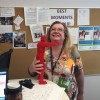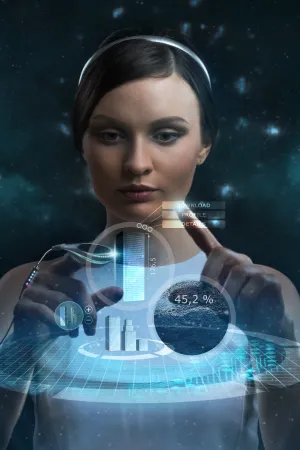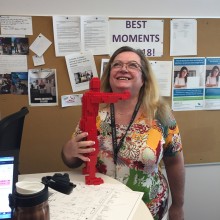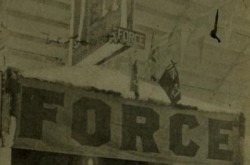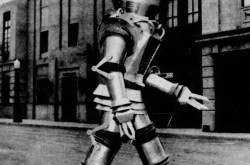How to Think Like a Futurist
What will life be like in 2050?
This was just one of the big questions that Rachelle Fournier, Manager of Exhibition Projects at the Canada Aviation and Space Museum, grappled with last month. Fournier took part in an intensive, two-day advanced leadership program in Ottawa called, “Thinking Like a Futurist: Navigating Complex Futures,” led by Dawn Nicholson-O’Brien, an expert on governance and innovation in the digital age. Following the program, Fournier caught up with Dawn Nicholson-O’Brien, President and CEO of Celtic Oracle, to discuss key highlights and perspectives.
Rachelle Fournier (RF): It’s hard to imagine what life will be like 30 years from now; how did you approach that question?
Dawn Nicholson-O’Brien (DNO): I start with trying to understand what your grandchildren might be seeing decades from now, using the same powers of imagination, creativity, and fearlessness that you exhibited when you were five years old. The endless curiosity that you displayed as a child, the passion and joy that enabled you to take on new challenges and to do things you had never done before, for which you had no known reference point, is precisely what is required now in this digital era. And, you have to be able to manifest that imagination, curiosity, courage, creativity, and caring as a leader.

RF: Inevitably, life will be much different in the year 2050. What are some of the key areas of change?
DNO: From aqueducts, printing presses, automobiles, trains, and aircraft to smartphones, biotechnology, artificial intelligence (AI) and gene editing using CRISPR, our tools have defined us and we have become deeply interdependent with our devices. As “digital apes” – as Nigel Shadbolt terms us – we are employing technology that consciously and purposefully allows us to alter our own biology, and, to colonize the outer reaches of space.
RF: What are your biggest personal concerns for the future?
DNO: The beasts that stalk us are no longer sabre-tooth tigers. They are, instead, cyberthreats and malicious attacks on democracy, weapons of mass destruction and terrorism, extreme climate events, loss of trust, income inequality and exclusion, AI systems and large online platforms that scrutinize every aspect of our lives. Multi-Billion-dollar industries built on the scaffolding of our digital selves, from wearable devices, browser searches, banking, shopping, driving, and other daily interactions, turn citizens into ‘data assets.’
This journey into possible futures is not simply one of technology and tools. It is, at its very heart, a social and political issue that will redefine what it means to be human. New social, economic, and, moral contracts are being forged. Artificial intelligence and machine learning systems are challenging human dominance in many fields, exposing the pretense that we will always hold the upper hand in cognitive terms and in decision-making. Radiologists, medical professionals, lawyers, accountants, truck drivers, postal workers, warehouse employees, auto manufacturing employees, and many others, have seen some of their tasks automated with robots and AI. And, there will be significant dislocations in the years ahead.
RF: Why is it important to “think like a futurist”?
DNO: Far-sighted leaders learn more rapidly than their peers – from breakdowns and breakthroughs equally. They are incredibly resilient in the face of adversity, and, they can make rapid shifts in direction when faced with ambiguity, uncertainty, and complexity. They seek out new partners to accomplish their objectives, thereby expanding their reach.
Valuing fearless innovators and early adopters in your midst, who are ahead of the curve, is essential to increasing your innovation capacity and doing more than merely guarding the status quo. Encouraging an increased curiosity quotient, and an appetite for surprises and intelligent risk-taking, are essential pre-conditions for achieving success as innovators.
Futures-oriented leaders and their highly-successful teams are inherently open-minded. Deliberately tracking and amplifying weak signals across systems, and seeking out diverse perspectives, people and ideas, these leaders rapidly create new value for clients and citizens, achieving transformative change. In contrast to those who operate in silos, creating islands of insights that go unshared, unnoticed and unused, strategic leaders invent the future, engage in strategic conversations, and, forge strong relationships to move everyone towards an aspirational future.
Parts of this text were originally published in the March 2019 edition of Modernization Bulletin, produced by Statistics Canada.
© Dawn Nicholson-O’Brien, President and CEO, Celtic Oracle
Contact Dawn: 613-592-7708 or dnicholsonobrien@rogers.com


